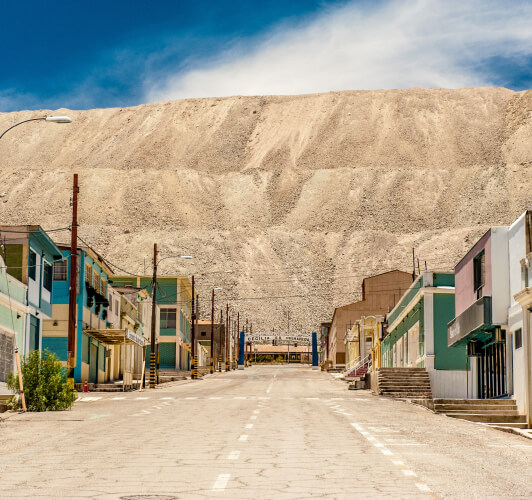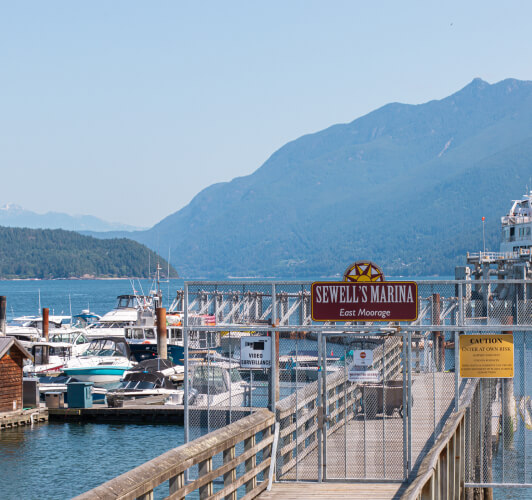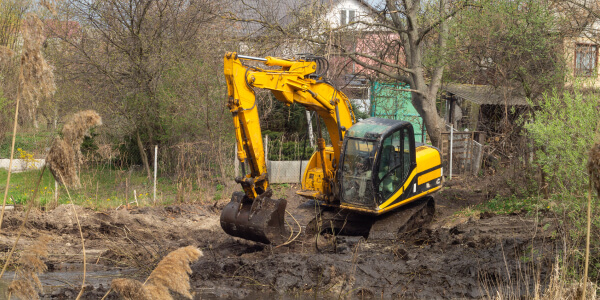Pumping and Dredging Project Consultation in Chile | Pump and Slurry
Chile’s industrial landscape is dominated by its rich natural resources and diverse manufacturing sectors, including copper, lithium, other minerals, foodstuffs, fish processing, iron and steel, wood and wood products, transport equipment, cement, and textiles. Efficient pumping, dredging, and dewatering services are crucial across these industries, ensuring operational efficiency and environmental management. In the mining sector, particularly copper and lithium, pumping systems are essential for transporting slurries and dewatering mines to facilitate safe extraction processes. Dewatering is critical in foodstuffs and fish processing to manage water use and waste. The iron and steel industry relies on pumping for cooling systems and handling byproducts while dredging is vital for maintaining ports that support transporting goods like wood and cement. These services enhance the productivity and sustainability of Chile’s primary industries and play a key role in maintaining the country’s economic growth and competitiveness in the global market.

Pumping and Dredging Project Consultation in Chile
Due to its reliance on robust mining and maritime industries, Chile’s slurry pumping and dredging projects are essential. Slurry pumping is critical for the mining sector, particularly for the efficient extraction and processing of copper and lithium, which are vital to the nation’s economy. These pumps transport slurry—a mixture of ore and water—from mines to processing plants, ensuring that valuable minerals are effectively separated. Dredging projects, on the other hand, are essential for maintaining navigable waterways and ports, which are crucial for the export of minerals and other goods. By facilitating these processes, pumping and dredging projects in Chile significantly contribute to the operational efficiency and global competitiveness of the country’s primary industries.
The sales and rentals of slurry pumps and dredging equipment in Chile support various industrial activities nationwide. With frequent and intensive mining operations, having access to reliable and efficient slurry pumps is essential for ensuring continuous productivity and minimizing downtime. Similarly, dredging equipment is vital for maintaining the infrastructure of ports and waterways, as well as for domestic transportation and international trade. Offering rental options provides flexibility for companies that need equipment for short-term projects or are looking to manage capital expenditures. The availability of these resources ensures that pumping and dredging projects in Chile can be carried out effectively, underpinning the nation’s industrial and economic growth.
Our Services
Consulting Services
Pumping & Slurry Transport
Dredging Consulting
Dewatering
Equipment Sales & Rentals
Equipment Rental
Equipment for Sale
Customization Services
Industries in Chile Requiring Slurry Pumping, Dredging, and Dewatering
Mining and Mineral Processing
Industries in Chile, particularly mining and mineral processing, require efficient pumping, dredging, and dewatering for optimal operations. In mining, slurry pumps are essential for transporting ore and water mixtures from extraction sites to processing plants. This process ensures that valuable minerals like copper and lithium are efficiently separated and processed. Dewatering is crucial in maintaining dry and stable mining environments, preventing water-related hazards, and facilitating safe working conditions. Dredging plays a significant role in accessing submerged mineral deposits and maintaining navigable routes for transporting mined materials. By ensuring these processes are efficient, the mining industry in Chile can maximize productivity, reduce operational costs, and mitigate environmental impacts, sustaining its position as a global leader in mineral production.
Fish Processing and Aquaculture
Chile’s fish processing and aquaculture industries rely heavily on efficient pumping, dredging, and dewatering to maintain their operations. Pumping systems circulate water in fish farms, ensuring optimal water quality and oxygen levels necessary for the health and growth of aquatic life. Dewatering is essential for managing fish waste, as it involves the removal of excess water, reducing pollution, and enhancing sustainability. Dredging is necessary for maintaining and deepening fishing harbors and aquaculture ponds, preventing silt buildup, and ensuring smooth water flow and vessel movement. These processes are vital for supporting the growth and productivity of Chile’s fish processing and aquaculture sectors, which are crucial for domestic consumption and export markets.
Iron and Steel
Chile’s iron and steel industry requires efficient pumping, dredging, and dewatering to support its manufacturing processes. Pumping systems are essential for cooling and handling byproducts during steel production, ensuring the smooth operation of blast furnaces and other machinery. Dewatering is critical for managing water used in production, treating and recycling wastewater, and reducing environmental impact. Dredging is necessary to maintain the navigability of ports and waterways for importing raw materials and exporting finished steel products. Efficient implementation of these services ensures the iron and steel industry can operate effectively, meet production demands, and maintain environmental compliance.
Forestry and Wood Products
In Chile’s forestry and wood products industry, efficient pumping, dredging, and dewatering are essential for various operational aspects. Pumping systems transport water and chemicals needed in paper production, ensuring continuous supply to manufacturing plants. Dewatering is a critical step in converting wood pulp into paper, where excess water is removed to produce high-quality paper sheets. Dredging is essential for maintaining waterways that facilitate the transport of logs and finished wood products. These services help enhance productivity, reduce environmental impact, and support the logistics chain within the forestry and wood products industry, contributing to its sustainability and economic significance.
Cement and Construction
Chile’s cement and construction industries depend on efficient pumping, dredging, and dewatering to maintain their projects. Pumping systems handle water and cement mixtures, which are crucial for construction activities like concrete pouring and foundation laying. Dewatering is essential for keeping construction sites dry, especially in areas with high groundwater levels or during rainy seasons, ensuring safe and stable working conditions. Dredging is necessary to maintain and expand ports and waterways, import raw materials like limestone, and export finished cement products. These processes support Chile’s infrastructure and development needs, ensuring construction projects are completed efficiently and sustainably.
Textiles
The textiles industry in Chile also requires efficient pumping, dredging, and dewatering for its manufacturing processes. Pumping systems are essential for handling dyes and chemicals in fabric production, ensuring consistent quality and color. Dewatering is critical in treating wastewater generated during the dyeing and finishing, reducing environmental impact, and reusing water. Dredging may be less directly involved in textile manufacturing but is crucial for maintaining ports used to import raw materials and export finished textile products. Efficient management of these services supports the sustainability and competitiveness of Chile’s textile industry in the global market.
Our Presence in the Country

Concepción

Valparaíso

Santiago

Calama

Antofagasta

Sewell
Conclusion
Chile’s diverse industrial landscape, spanning mining, fish processing, iron and steel, forestry, cement, and textiles, is central to the nation’s economic strength. Each industry relies heavily on efficient and reliable pumping, dredging, and dewatering services to maintain operational excellence and sustainability. In mining, these services are crucial for extracting and processing copper and lithium. The fish processing sector depends on them for maintaining water quality and managing waste. Iron and steel production and forestry and wood products manufacturing require these services for efficient material handling and environmental management. Similarly, the cement and construction industries use them to keep construction sites dry and operational, while the textile industry relies on them for managing dyes and wastewater. Pumping and dredging projects in Chile ensure these industries can operate smoothly, support the country’s infrastructure, and maintain global competitiveness. By underpinning these critical industrial activities, pumping and dredging projects in Chile play an essential role in sustaining the nation’s economic growth and development.






